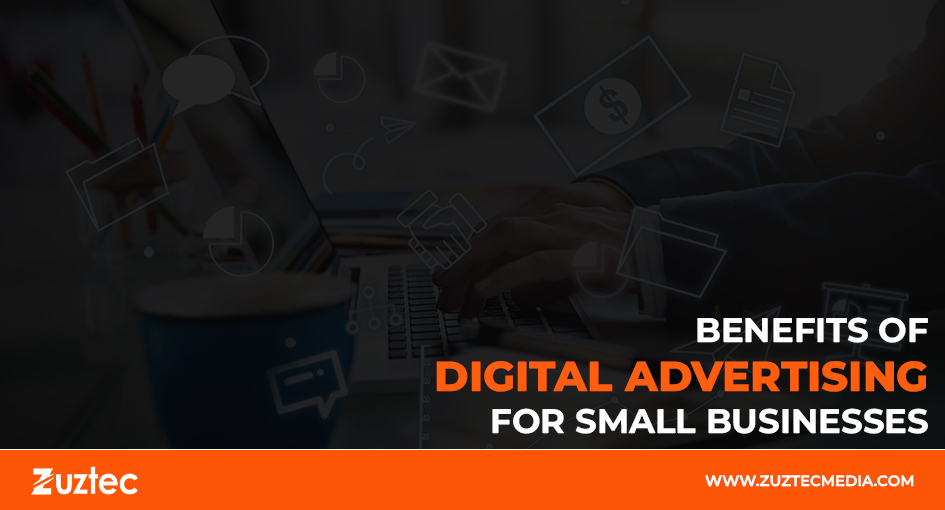
Benefits of Digital Advertising for Small Businesses
In today’s rapidly evolving business landscape, digital advertising has emerged as a powerful tool for small businesses looking to compete and grow. With limited budgets and resources, traditional advertising methods can be out of reach for many small companies. However, digital advertising offers a cost-effective way to reach a wider audience, improve brand visibility, and drive targeted traffic to websites. By leveraging platforms like social media, search engines, and email marketing, small businesses can build meaningful connections with potential customers and achieve a higher return on investment (ROI) than many traditional methods.
The capacity of internet marketing to target particular demographics is one of its main advantages. Small businesses can zero in on the exact audience they want to reach, ensuring their ads are seen by individuals who are most likely to be interested in their products or services. This not only saves money but also increases the likelihood of generating leads and conversions. Additionally, online marketing provides real-time analytics, allowing businesses to track the performance of their campaigns and make data-driven decisions to optimize their strategies.
Online marketing allows small businesses to scale their efforts, adapting to budget, timing, and performance, making it an essential part of modern marketing strategies. This flexibility enables them to remain competitive in a dynamic market.
How Digital Advertising Enhances Brand Visibility
One of the most significant advantages of online marketing is its ability to enhance brand visibility across a variety of online platforms. Whether through social media, search engines, or display networks, small businesses can position their brand in front of potential customers who are actively searching for products or services. Through platforms like Google Ads, Facebook, and Instagram, businesses can set up campaigns that target specific demographics, geographic locations, or even interests, ensuring their ads are seen by the right audience.
For small businesses, this targeted approach maximizes the effectiveness of each dollar spent. Instead of paying for ads that reach a broad but irrelevant audience, online marketing allows businesses to focus their efforts on individuals who are more likely to engage with their content and make a purchase. This ability to focus on high-intent audiences helps small businesses increase the likelihood of generating leads and driving sales.
Cost-Effectiveness of Digital Advertising
A key benefit of online marketing for small businesses is its affordability. Traditional advertising options like television, print, or radio can be costly, with no guarantee of reaching the intended audience. In contrast, online marketing platforms operate on a pay-per-click (PPC) or pay-per-impression (PPI) model, meaning businesses only pay when a user interacts with their ad. This allows small businesses to control their ad spend, scaling campaigns up or down based on performance and budget.
Additionally, online marketing offers the advantage of real-time analytics. Small businesses can monitor the performance of their campaigns through detailed insights, such as click-through rates (CTR), impressions, conversions, and more. With access to this data, businesses can quickly adjust their strategies, optimizing their ads for better performance and a higher return on investment (ROI). This level of flexibility and control is something traditional advertising simply cannot offer.
How Small Businesses Can Leverage Digital Advertising for Growth
Digital advertising enables small businesses to reach beyond their local market and tap into global audiences. With the use of platforms such as Google Ads and Facebook Ads, even businesses with modest budgets can expand their reach to target customers across regions, countries, or specific cities. Furthermore, small businesses can use retargeting techniques to re-engage potential customers who have previously interacted with their website or social media profiles but did not make a purchase.
In addition to expanding their audience, online marketing allows small businesses to track customer behavior and preferences. With tools like Google Analytics, businesses can analyze how users interact with their ads and adjust their marketing tactics accordingly. This data-driven approach empowers small businesses to create personalized campaigns that resonate with their audience, improving the chances of conversion.
Another advantage of online marketing is its ability to foster direct interaction with customers. Through social media ads or email marketing, small businesses can engage with customers in real-time, responding to questions, addressing concerns, and promoting special offers. This creates a sense of connection and trust, which is essential for building long-term relationships with customers.
In conclusion, as small businesses continue to navigate a fast-paced digital landscape, digital advertising will remain a crucial tool for driving growth and staying competitive. Its ability to reach targeted audiences, provide measurable results, and offer flexibility makes it an ideal solution for businesses with limited resources. Whether it’s through search engine marketing, social media ads, or display campaigns, small businesses can leverage online marketing to achieve their marketing goals while maintaining control over their budget.
Businesses that invest in online marketing can expect to see increased brand awareness, more qualified leads, and ultimately, higher sales. With the right strategies in place, small businesses can make the most of their advertising efforts, ensuring they reach their audience effectively and maximize their return on investment.

